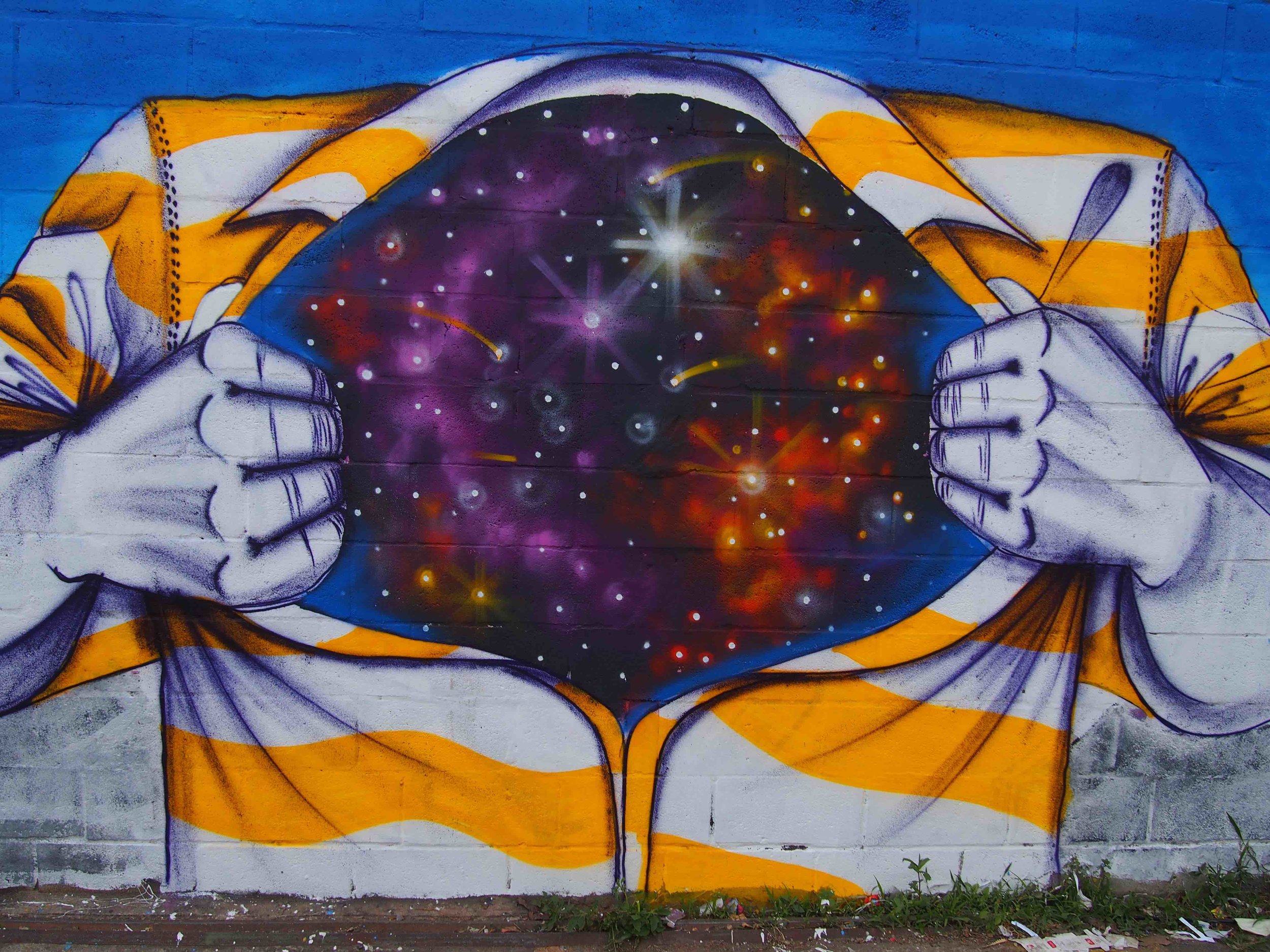INTEGRATED PRACTICE
4. Narrative Skills
Storytelling is an archetypal force that manifests itself in infinite ways. Jokes, koans, anecdotes, puns, pithy sayings; stories, novels, plays, movies; compositions, choreography; photography, painting, and all the visual arts, traditional and modern; thinking & dreaming:
Storytelling is the art or skill of imparting information in a meaningful way.
1. Verbal Narrative. To speak is to tell a story, regardless of what you say. In fact, you’re the embodiment of story; everything you think, say, and do has narrative dimensions. In this segment we’ll dip our toes in the immense narrative reservoir that comes from our talking. Jokes, anecdotes, playacting, sound effects. Pingu. Tell the story of your name.
2. Pictorial Narrative. A single image is like a seed. Planted in your imagination, it becomes a story. You might believe that the image tells the story, but in fact it’s your imagination that does it. In this workshop, we’ll look at several types of images; we’ll juxtapose images; we’ll produce our own images in various media; and we’ll develop our narrative skills in response to images.
3. Written Nonfiction Narrative. People pick big fights when they’re trying to determine the truth. The fights are inevitable, since we always look at the world through our filters: My truth isn’t your truth! In this segment. we’ll exercise our skills in "facing the facts" and writing about them.
4. Written Fiction Narrative. The word "fiction" comes from an ancient root meaning "a fashioning or feigning; to shape, form, devise; to knead, to form out of clay." In this segment, we'll fashion our thoughts, emotions, and insights into very short stories.
